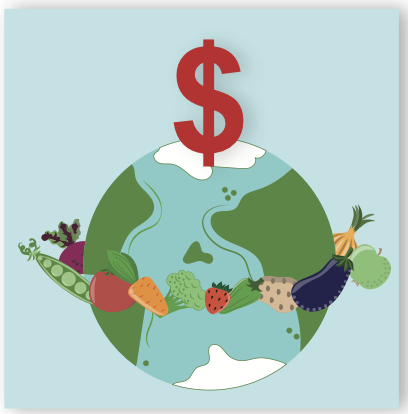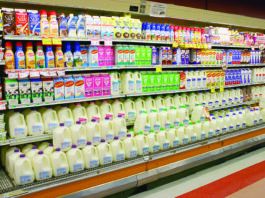Fungi Offers Hope for Grapefruit Fans
People on certain medications that interact with grapefruit juice may someday be able to enjoy the tart beverage again-thanks to a fungus. Studies by USDA Agricultural Research Service (ARS) scientists have shown that the fungus- Aspergillus niger-can either bind or break down the compounds in grapefruit, called furanocomarins (FCs), that affect medications. FCs inhibit the enzymatic activity responsible for metabolizing certain prescribed medications, allowing more of the medication to enter the bloodstream.
Eating Fast May Zoom Past Bodys Stop Signs
Slowing down your eating not only gives you a chance to actually taste your food, it may give your body time to signal, Enough! Greek researchers report that gobbling food appears to short-circuit the release of appetite-regulating hormones, promoting overeating. They conducted a crossover study with 17 healthy men,
Some Active Video Games Break a Sweat
Can active video games such as those played with the motion-controlled Nintendo Wii give you enough of a workout to count toward the goal of 30 minutes of daily exercise? A new study (funded by Nintendo) offers a cautious yes, demonstrating that playing games included in the Wii Sports and Wii Fit packages can be the equivalent of walking on a treadmill at three miles an hour or faster. Thats the threshold for moderate-intensity activity, about 3 metabolic equivalents (METS), a measure of energy expenditure.
FDA Weighs Nutrition Facts Edits
Changes may be coming to the familiar Nutrition Facts panel on food packages. The US Food and Drug Administration (FDA) just completed a public-comment period on a proposed study to test labeling changes with a randomly selected group of 3,600 consumers.
Antioxidants Higher in Darker-Roasted Peanuts
Darker-roasted peanuts pack a greater antioxidant punch, according to Agricultural Research Service (ARS) scientists in North Carolina. The researchers measured antioxidant levels in peanuts roasted at 362 degrees from zero to 77 minutes. Longer, darker roasting was consistently associated with higher levels of both water- and oil-soluble antioxidants, which scientists attributed to greater concentrations of phenolic compounds and/or browning reaction products.
Cutting TV Time Improves Calorie Balance
Turning off the TV might help you lose weight-but only a little, reports the first study to measure the effects of a TV reduction intervention in adults. Researchers spent three weeks observing the viewing habits of 36 volunteers, all overweight or obese. Then 20 randomly selected participants had their TVs fitted with a device that shut off the screen after theyd reached a weekly limit of half their previous viewing time. The other 16 served as a control group, watching all the TV they wanted.
Dieticians Endorse Food Over Pills
The American Dietetic Association says a nutritious diet, not pills, is the best way to promote health and reduce the risk of disease. In a new position statement, the dieticians group stated, The best nutrition-based strategy for promoting optimal health and reducing the risk of chronic disease is to wisely choose a wide variety of nutrient-rich foods.
Obesity Rates High But Stabilizing
New government data suggest that while US levels of obesity and overweight remain far too high, the rate of increase may be slowing. About one-third of adults were obese in the latest analysis of data from the National Health and Nutrition Examination Survey (NHANES).
Weight Tops Smoking in Impact on Quality of Life
In another new study on obesity, the toll of excess weight on Americans health and quality of life was reported to have overtaken that of smoking, even though tobacco still poses a greater mortality threat. The analysis of 15 years of public-health data concluded that by 2008, the obese were losing more quality-adjusted life years (QALYs) through disability and limitations on activity. That contrasts with 1993, when the QALYs lost to obesity were far behind the toll of smoking.
Dehydration Affects Your Mood
Dehydration has long been known to compromise physical performance. Now, a new Tufts study provides insight into the effects of mild dehydration on young athletes, and possibly into the lives of people too busy to consume enough water daily. About 30 male and female Tufts students were assigned to either a dehydration group not given fluids during athletics, or a control group that was given water. Participants weighed in before and after athletics to assess body water loss. After athletic activity, participants underwent cognitive tests, which included short-term memory and mood scales.

























